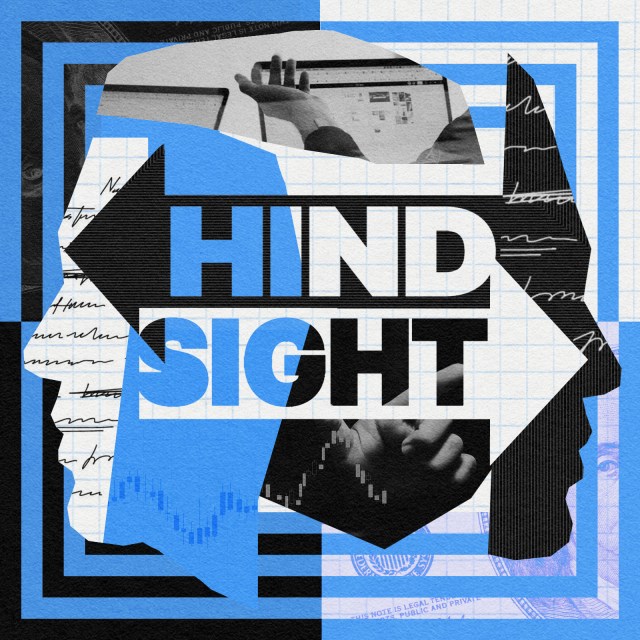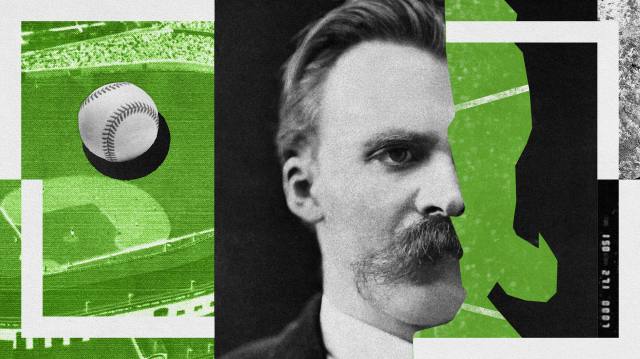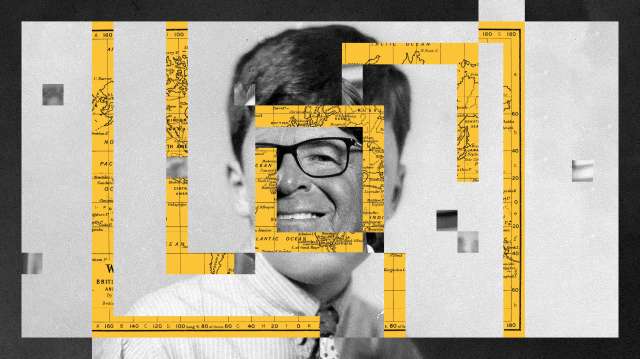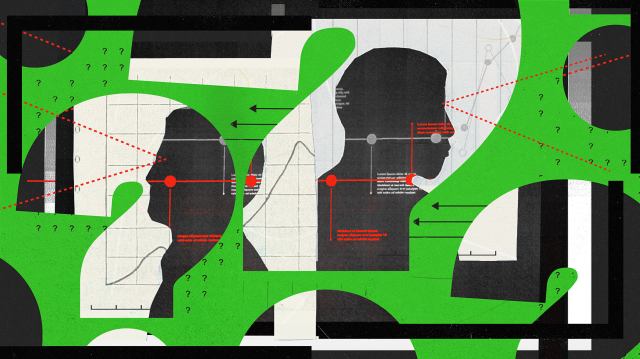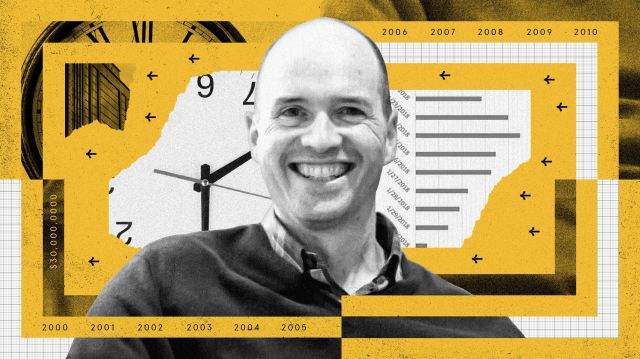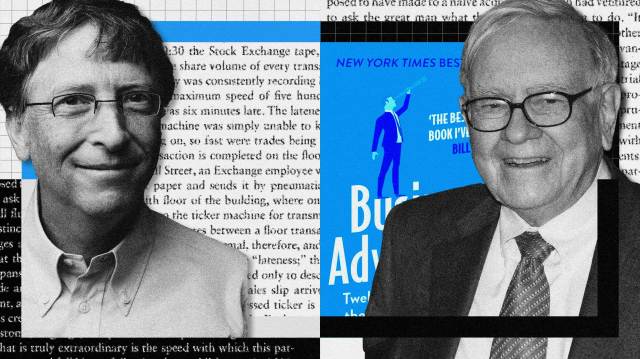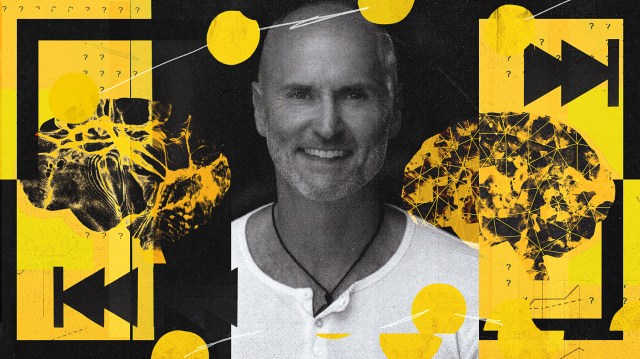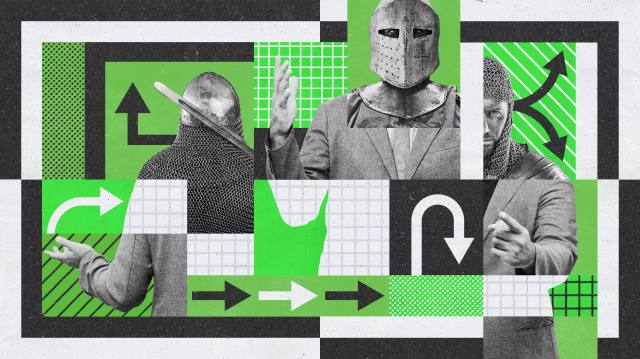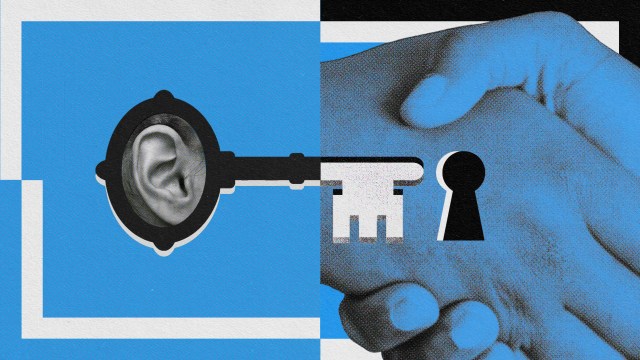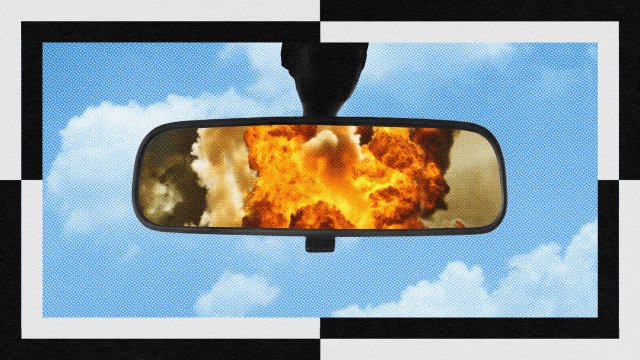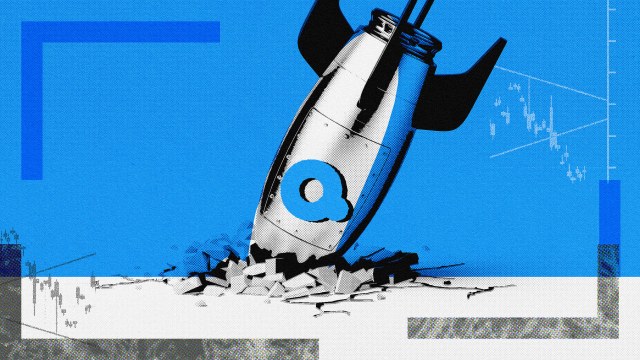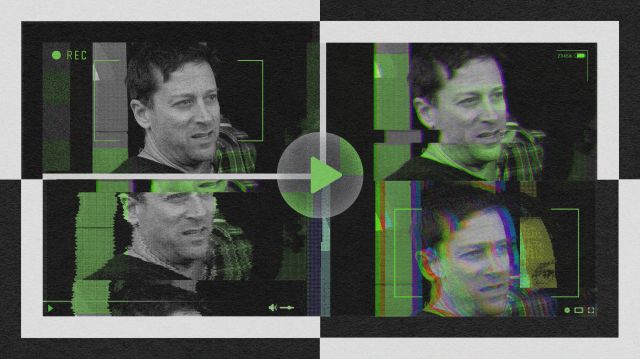How the Kierkegaard view of hindsight can help us reframe our work-lives

- Søren Kierkegaard once wrote, “Life can only be understood backwards… but it must be lived forwards.” He painted life as a paradox.
- His point is that we look back on the past as some fixed thing — but the future is worryingly uncertain.
- Here we look at how we can harness Kierkegaard’s existential anxiety for the best.
There are few things quite as jaw-dropping as a well-executed plot twist. Think about the first time you watched Fight Club, The Sixth Sense, or Gone Girl. Think about that moment of breathless exhilaration when the big reveal pops up to change everything. In the wake of a good plot twist, everything that you’ve seen, heard, and learned in the hour or so before is upended. In your head, you rewrite what the characters said. You reinterpret all those innocuous, background things as being clues. You spend an hour on the internet reading what others had spotted. A movie seen with the hindsight of a plot twist is utterly different from when you watched the opening scene.
But it’s not just plot twists that work this way. Almost all of the stories we tell are defined by the ending. The happily ever after or the sadly ever after add their particular hue to the preceding events. According to the Danish philosopher Søren Kierkegaard, the same is true for the story of our lives. In one of his most famous and commonly shared quotations, he wrote, “Life can only be understood backwards… but it must be lived forwards.”
Here we dive into what Kierkegaard meant in his famous philosophy of hindsight, and see how we can apply this wisdom to our everyday lives.
Bumbling our way
If you want to become proficient at something, you have to do it again and again: practice a foreign language, go through the scales on your piano, or lift increasingly heavier weights at the gym. Excellence is not a virtue, but a habit. But the problem is that we only get one chance at life. We’re all here for the first time, fumbling and bumbling our way through things as best we can. We learn from our parents and listen to our elders. We read books about the old times, but they can only bring us so far. As Kierkegaard elsewhere writes, “However much one generation learns from another, it can never learn from its predecessor the genuinely human factor. In this respect, every generation begins afresh.”

This presents us with a peculiar paradox, and Kierkegaard was fond of paradoxes. We must learn from the past and grow from our mistakes, and yet every moment stretching before us is new. Everything in our future is strange and unfamiliar. It might resemble the past in some ways, but it is different in all the ways that matter. Many people might know what it’s like to be in love, but the next time we fall in love, it will be different. We might have been to the same coffee shop every day for a year, but today will be different. You might have talked to your father a hundred thousand times, but when you speak to him on his deathbed, it will not be the same.
When we look back on things with the omniscient certainty of hindsight, things are easy. They seem obvious. They are easily examined and judged because they are fixed. You cannot change what has happened, and so you can label it. The existentially bothersome fact, though, is that all the living we have left to do is not fixed. It lives in some shimmering, murky fog — a future with vague blobs for our loved ones and rough boundaries for where we’ll call home.
We walk onward, but we do not know where to.
Living in the fog
One of Kierkegaard’s overarching themes is to get used to paradoxes. We need to learn how to live in that gray space between black and white — the future will never give us answers until it becomes the present. So, how can we get used to this fact in our daily lives?
Reserve judgment. You will fail, at some point, in your job. You’ll send the wrong email, miss a certain deadline, or won’t get the promotion you wanted. Most of the time, this feels awful. But the wisdom of Kierkegaard’s hindsight is to accept that we do not know how this will turn out. In 2027, there might be a version of you sitting happy and saying, “Thank heavens I didn’t get that pay rise.” Do not judge now when we don’t know where it will lead to. The story goes on. It rarely ends with the hero beaten.
Learn from your colleagues. There are two parts to Kierkegaard’s wisdom: first, looking back, things seem obvious. Second, the future is unknown. Both of these can be applied to how we view our colleagues. Most people form their judgments of people within minutes of meeting them. These judgments are fossilized by a few encounters in the first few months. We place these people in the past and lock them away. But every single person in your office or on your team has a skillset you don’t. They know something you don’t. Do not let the past blind you to the possibilities of the future, and seek out opportunities to learn from your colleagues. Of course, this is not always an easy thing to do, but Big Think+ can help. Angie McArthur, the CEO and co-founder of CORE, teaches us how to shift to a “Mindshare Mindset.”
Pivot and grow. Let’s zoom out. Let’s leave our Danish philosopher brooding in the anxious liminal space between the past and the future. Let’s look at something more concrete: the robustness of your business. Because what Kierkegaard was saying can equally be applied here. Unless you are lucky enough to receive millions in an early seed investment, most businesses need to grow over time. Sometimes, there will be setbacks and lean years. Sometimes there will be flush ones. Kierkegaard’s wisdom asks us to focus on cultivating resilience and long-term vision within your team. It could mean investing in continuous training, fostering a supportive workplace environment, setting ambitious yet attainable goals, and preparing your business for whatever lies ahead.
The future is uncertain, and it’s unwritten. Novelist L. P. Hartley said, “The past is a foreign country,” but Kierkegaard tells us the future is a foreign universe.
